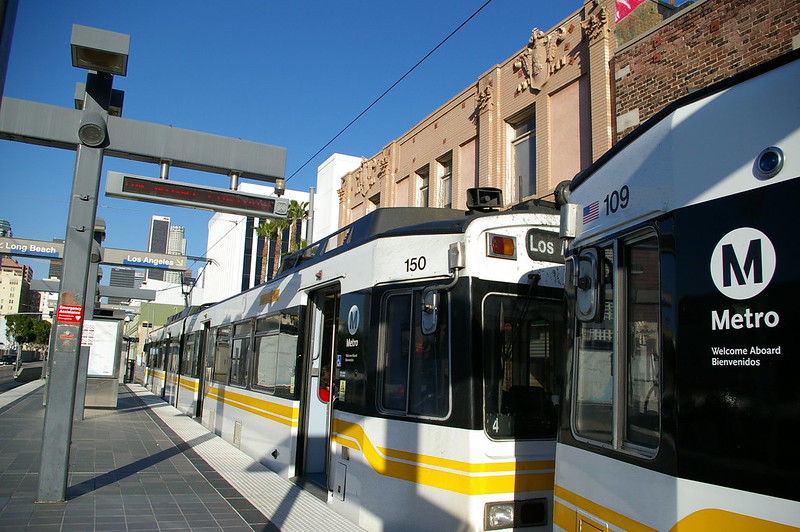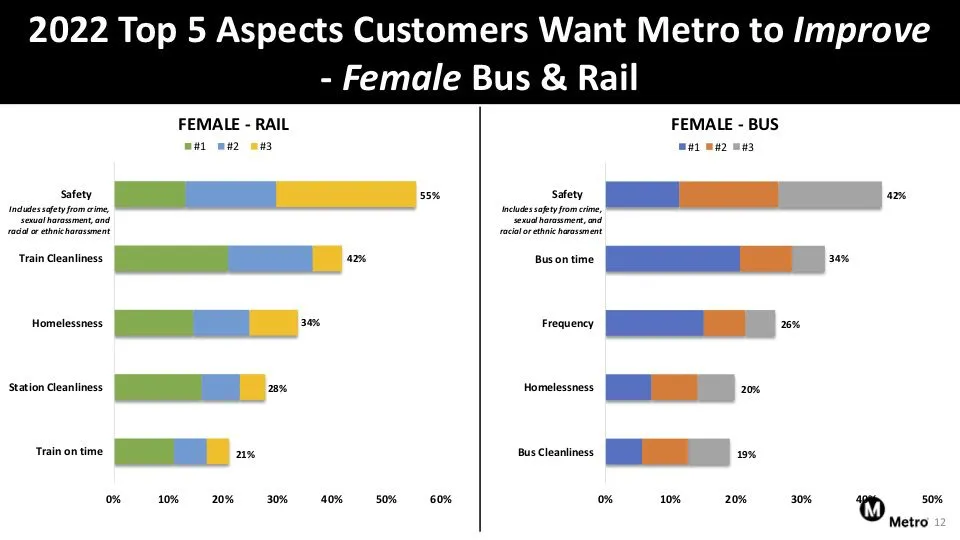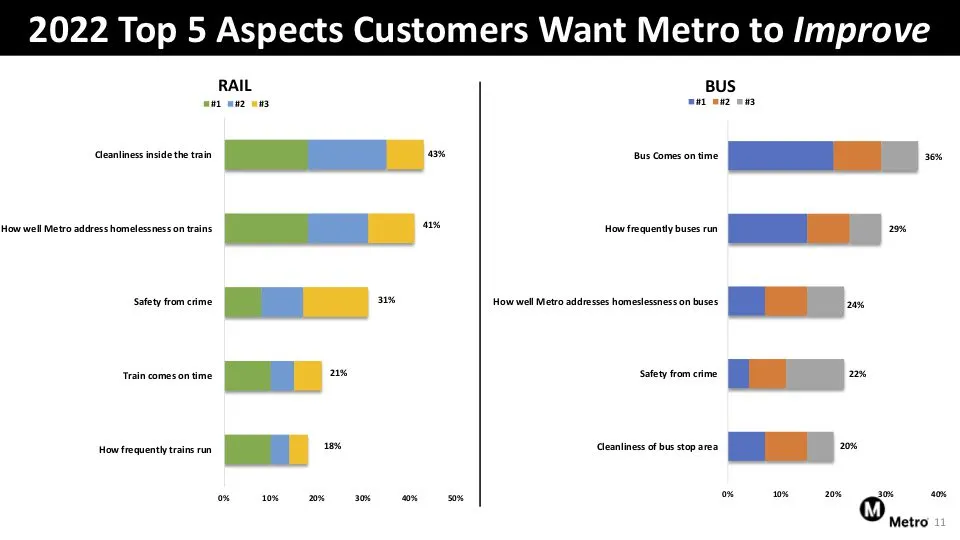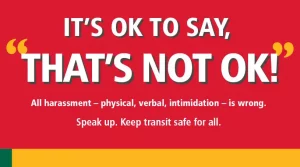
Photo: Frederick Dennstedt (Flickr)
Fewer women taking LA transit amid safety concerns
03 November 2022
by Christopher Carey
A report by LA Metro has revealed a drop in the number of female passengers using its buses and trains – with almost 50 percent of those surveyed citing crime, sexual harassment and safety as their main concerns.
The survey of over 12,000 LA Metro customers – taken between March and May of 2022 – found female bus ridership fell from 53 percent to 49 percent and rail ridership dropped from 46 percent to 44 percent, when compared with pre-pandemic figures.
“We are concerned about it because we are very focused on delivering a good customer experience for all our riders,” said LA Metro’s Chief Customer Experience Officer, Jennifer Vides.
“We have work to do in order to improve the experience for women.”
When asked what could be improved on LA Metro services, safety was cited as the number one concern for female rail and bus passengers.


LA Metro says it is trying to make riders feel safer by doubling homeless outreach teams and adding 300 ride ambassadors by February 2023.
In June, the transit agency partnered with Strive, a wellness and community health company, to implement and manage a team of transit ambassadors.
The programme is part of Metro’s plan to bring non-law enforcement representatives to improve the customer experience, reinforce public safety, and increase ridership on its transit system.
Speaking at its launch, Stephanie Wiggins, LA Metro’s CEO, said “Our top priority is to improve the customer experience – including making sure our riders feel safe.
“In the coming months, we expect customers will see a noticeable difference with our transit ambassadors in place. Once they deploy, transit ambassadors will greet riders and help our customers have positive interactions with our system.”
Seattle anti-harassment campaign
Safety on public transport in the US has become a critical issue, particularly as transit agencies struggle to get customers back after the pandemic.
Washington State’s King County Metro recently introduced new multilingual signs on its buses as part of efforts to reduce harassment.
Developed in co-ordination with community members and employees, the initiative outlines an expectation for respectful behaviour on services, and also informs passengers how they can get help in an emergency.
The ‘It’s OK to Say, That’s Not OK’ campaign encourages riders to report any form of harassment to the driver, to call or text 911, or contact its customer service office.

“Reporting allows us to better allocate resources and to continue to improve the customer experience,” a statement from the transit operator read.
“While Metro created this campaign at the request of and in partnership with organisations that are disproportionately affected by harassment and violence, the visuals intentionally do not show specific communities to avoid amplifying hate or reinforcing stereotypes.”
Frederick Dennstedt (Flickr)













